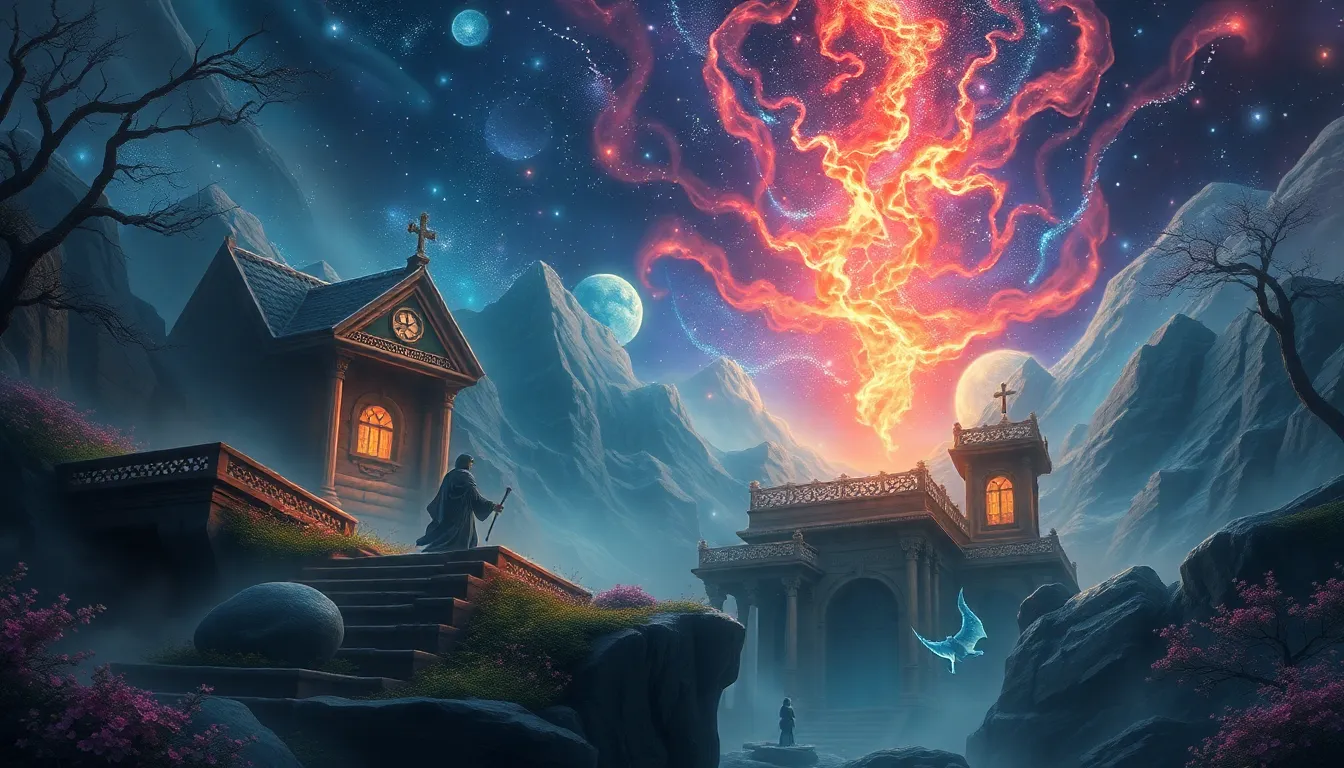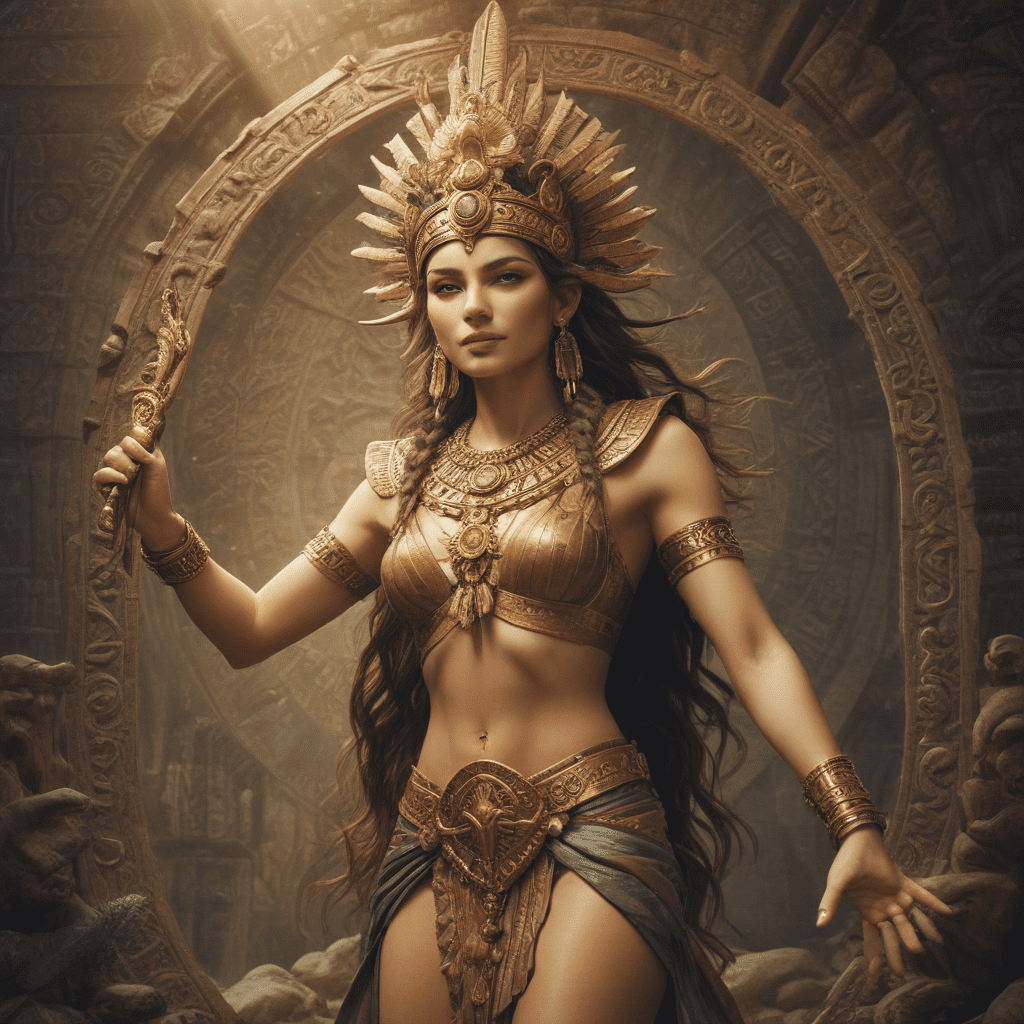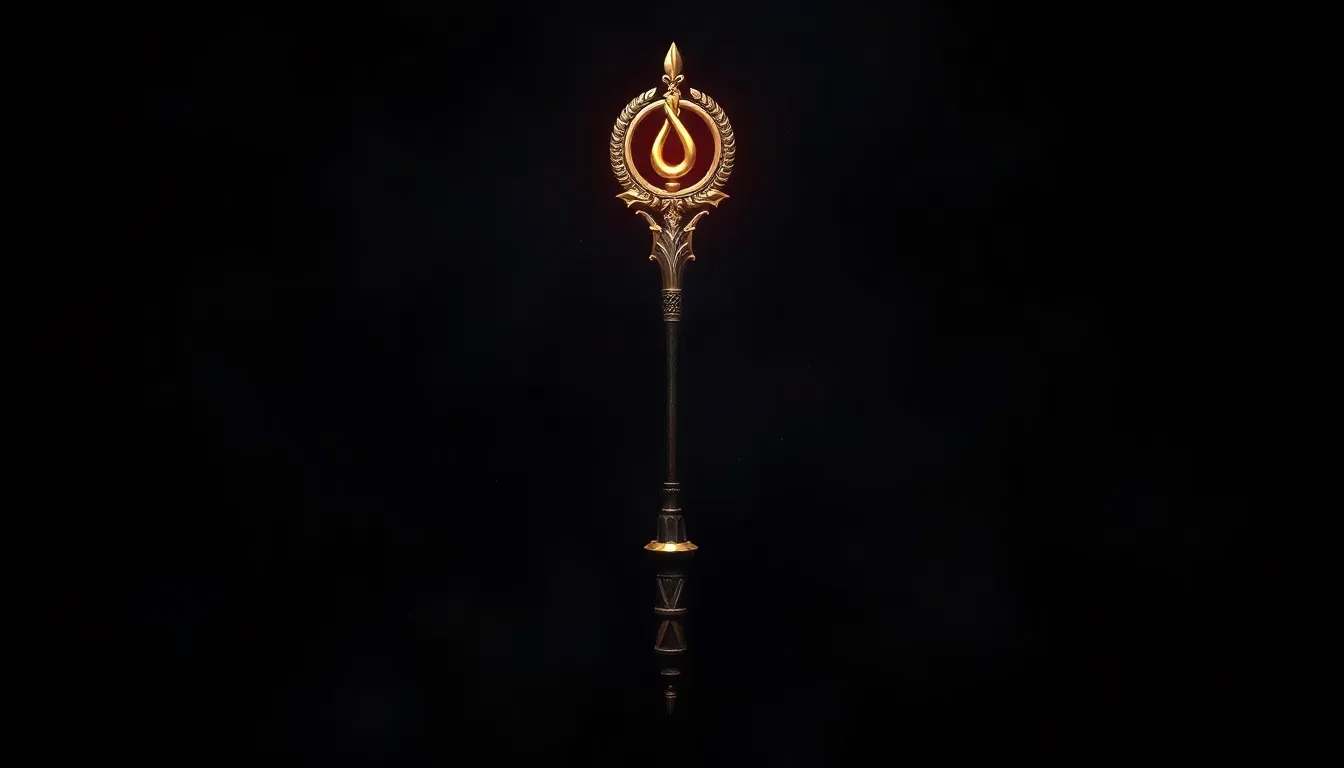The Quest for the Enchanted Realm: Myths of Magical Worlds
Introduction to Enchanted Realms
Enchanted realms are defined as mystical, otherworldly locations that exist in mythology and literature, often inhabited by fantastical creatures and governed by unique laws of nature. These realms serve as a canvas for human imagination, allowing for the exploration of themes such as adventure, morality, and the supernatural. The significance of magical worlds in human culture cannot be overstated; they offer an escape from reality, a way to grapple with human fears and desires, and a means to connect with deeper truths about existence.
Historical Origins of Magical Myths
The origins of enchanted realms can be traced back to ancient civilizations, each contributing unique narratives and landscapes to the tapestry of human mythology. For example:
- Mesopotamia: The Epic of Gilgamesh features the Cedar Forest, a sacred space filled with divine beings.
- Greece: The realm of the gods on Mount Olympus and the Underworld, ruled by Hades, are central to Greek mythology.
- Egypt: The Duat, or the underworld, is depicted as a mystical realm where the dead journey through various challenges.
Folklore has played a vital role in shaping cultural perceptions of magical worlds. These stories often incorporate local beliefs, morals, and values, helping communities to understand their world and their place within it.
Key Characteristics of Enchanted Realms
Enchanted realms share several common traits that define their magical nature:
- Fantastical Creatures: Many enchanted worlds are populated by beings such as fairies, dragons, and mythical beasts.
- Unique Laws of Nature: The physics and rules of these realms often differ from the real world, allowing for the impossible to occur.
- Interplay Between Magic and Reality: These worlds often blur the line between what is real and what is magical, creating a rich tapestry of possibilities.
Famous Enchanted Realms in Literature
In literature, enchanted realms have become iconic, with several notable examples standing out:
- Narnia: C.S. Lewis’s world filled with talking animals, mythical creatures, and the eternal struggle between good and evil.
- Middle-earth: J.R.R. Tolkien’s richly developed universe teeming with diverse cultures, languages, and epic quests.
These magical worlds have profoundly impacted popular culture and modern storytelling, inspiring a plethora of adaptations, merchandise, and fan communities that keep the spirit of these realms alive.
Enchanted Realms in World Mythologies
A comparative study of enchanted realms across different cultures reveals fascinating similarities and differences:
- Avalon: In Arthurian legend, a mystical island associated with healing and eternal youth.
- Elphame: A realm from Scottish folklore inhabited by the Faerie Folk, often depicted as a place of beauty and danger.
- The Land of the Dead: Various cultures have their interpretations, such as the Greek Hades or the Egyptian Duat, emphasizing the journey after death.
These myths reflect societal values and beliefs, often embodying the culture’s understanding of life, death, and the afterlife.
The Role of Protagonists in the Quest for Enchanted Realms
The protagonists of enchanted realms often embody archetypal hero and heroine traits:
- The Reluctant Hero: A character who is initially hesitant but grows into their role.
- The Chosen One: A hero destined for greatness, often marked by unique abilities.
- The Companion: A loyal friend who aids the hero, providing support and wisdom.
The hero’s journey is significant in discovering enchanted realms, often symbolizing personal growth, self-discovery, and the triumph of good over evil.
Modern Interpretations of Enchanted Realms
In contemporary literature and media, enchanted realms continue to be reinterpreted:
- Fantasy Novels: Authors like Neil Gaiman and Patrick Rothfuss offer fresh takes on magical worlds.
- Films: Movies such as “Harry Potter” and “Pan’s Labyrinth” blend traditional myths with modern storytelling techniques.
The blending of technology and magic is increasingly prevalent, as seen in works that incorporate virtual reality, enabling audiences to experience enchanted realms in immersive ways.
Psychological and Symbolic Significance of Enchanted Realms
The psychological impact of enchanted realms on human imagination is profound. These worlds serve as:
- A Means of Escape: They provide an escape from the mundane, allowing individuals to explore their desires and fears.
- A Source of Adventure: The thrill of exploration and the unknown captivates the human spirit.
- A Path to Self-Discovery: Characters often undergo transformative journeys that mirror the reader’s own experiences.
Symbolically, magical worlds address universal themes such as the quest for identity, the struggle against adversity, and the pursuit of dreams.
The Future of Enchanted Realms in Storytelling
Looking ahead, the evolution of enchanted realms in literature and media is likely to be influenced by:
- Digital Technology: The rise of digital storytelling and interactive narratives could redefine how audiences engage with magical worlds.
- Virtual Reality: As VR technology advances, immersive experiences may allow users to step directly into enchanted realms.
This evolution holds the potential for new myths and magical worlds to emerge, reflecting contemporary societal values and technological advancements.
Conclusion: The Enduring Allure of Enchanted Realms
Enchanted realms continue to captivate audiences due to their ability to transcend reality and tap into the collective human imagination. As we venture into the future, the quest for new magical worlds will undoubtedly persist, fueled by our unending curiosity and desire for adventure. The potential for new myths to emerge is limitless, ensuring that enchanted realms will remain a vital part of human storytelling for generations to come.



